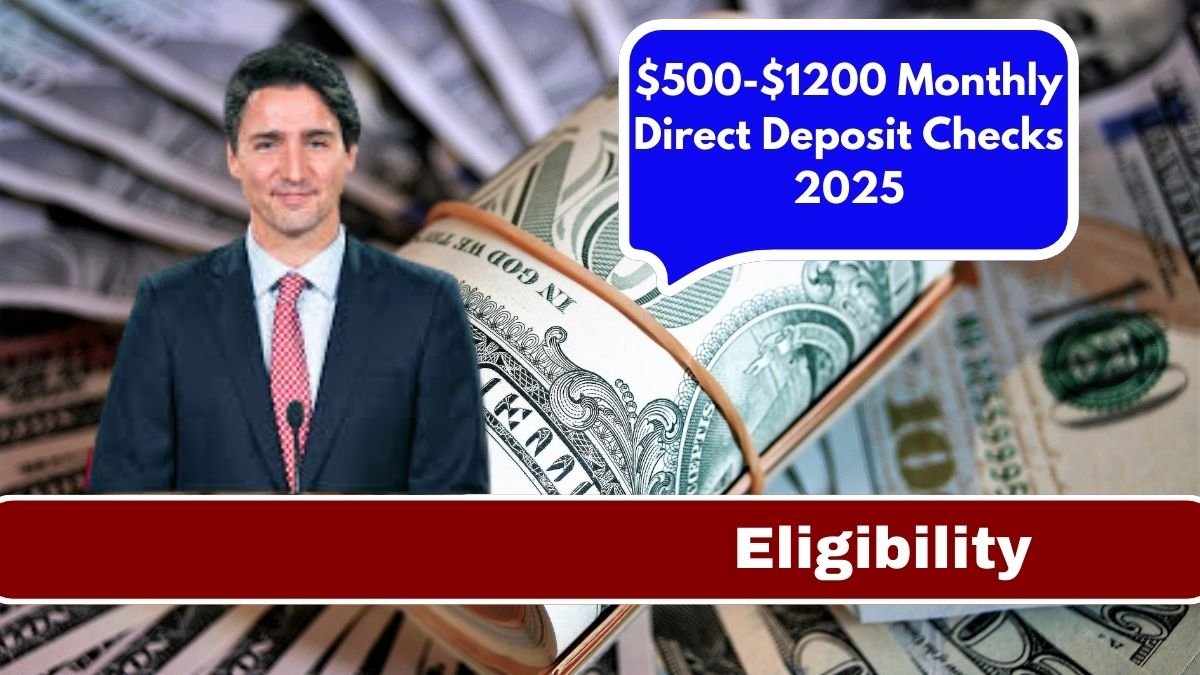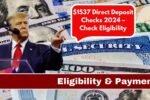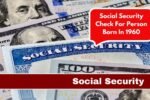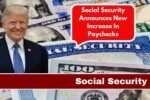In today’s world, everyone is looking for ways to earn extra money or secure reliable financial support. Recently, there has been a buzz surrounding $500 to $1200 monthly direct deposit checks set to be issued in 2025. But what exactly are these checks? Are they real, and how can you qualify? Let’s dive into all the details you need to know.
What Are These Monthly Direct Deposit Checks?
These rumored monthly direct deposit checks refer to government or state programs that could provide regular payments to eligible individuals. People are talking about financial aid that could help ease the burden of everyday expenses, especially in uncertain economic times. The idea is simple: receive a steady, direct deposit into your account each month without having to jump through hoops or deal with complicated paperwork.
The Buzz Around These Checks
Over the past few months, rumors have been circulating about various government initiatives aimed at helping people financially. Some of these initiatives are based on previous programs like stimulus payments or universal basic income trials. While some believe the checks will start in 2025, others think it could be part of ongoing economic support packages designed to provide relief during tough times.
Are They Real or Just Rumors?
The concept of monthly direct deposit checks isn’t new. For example, during the COVID-19 pandemic, the U.S. government issued multiple rounds of stimulus payments to help people survive financially. This caused a lot of excitement, and many people began wondering if such programs would continue in the future.
In 2025, some states or federal programs might begin to offer these kinds of payments, but it’s important to separate fact from fiction. While some news outlets and social media posts claim these checks will start soon, it’s best to wait for official announcements from government bodies or trusted organizations.
Who Will Be Eligible for These Payments?
Eligibility for these monthly checks could vary depending on the program and the region. Some programs might target specific groups, such as low-income families, seniors, or individuals who lost income due to the pandemic or other crises. Others may be open to anyone who meets certain criteria, such as income levels or employment status.
Generally, you can expect that the government will require proof of your eligibility. This might involve providing information about your income, family size, and other financial details. Be prepared to fill out forms or even submit tax returns to prove your need for financial assistance.
What Will You Receive?
If you’re eligible, the monthly payments could range from $500 to $1200 or more, depending on the program. The amount may be based on factors like your income level, family size, and location. While this amount could make a noticeable difference in your budget, it’s important to remember that this isn’t meant to replace a full-time income. These checks are intended to provide supplemental support, not cover all of your expenses.
How Will the Payments Be Delivered?
If you qualify for the direct deposit checks, they will most likely be sent straight to your bank account. Direct deposit is a secure and efficient way for the government to send payments without the need for physical checks or cash. The funds would arrive on a regular monthly schedule, so you can count on knowing when to expect the deposit.
The direct deposit option is also more reliable than other payment methods, reducing the risk of lost checks or delays. You’ll simply see the money deposited into your bank account, often with a simple notification.
What’s the Catch?
Like any government program, there will be rules, and not everyone will qualify. The government is likely to place limits on who can receive these payments based on factors like income, employment status, and tax filings. Plus, there may be additional requirements such as providing financial records or proof of need.
Before you get too excited, it’s important to be cautious. As mentioned earlier, there are many rumors floating around, and until an official announcement is made, it’s best not to rely on these payments as a guaranteed source of income. Stay updated on news from official government sources, and don’t fall for scams that promise easy access to these checks.
How to Prepare for These Payments
Even though these checks may not be guaranteed just yet, it’s always a good idea to prepare yourself for the possibility. Keep your financial records updated, file your taxes on time, and stay informed about eligibility criteria. If such payments are announced in 2025, being prepared will help you take advantage of the opportunity quickly.
Table: Potential Monthly Direct Deposit Check Amounts in 2025
| Program Type | Potential Monthly Amount | Eligibility Criteria | Expected Start Date | Delivery Method |
|---|---|---|---|---|
| Universal Basic Income (UBI) | $500-$1200 | Low to moderate-income families | 2025 | Direct Deposit |
| COVID-Relief Programs | $500-$1000 | Low-income individuals | 2025 | Direct Deposit |
| Senior Citizens Assistance | $500-$700 | Seniors (65+ years old) | 2025 | Direct Deposit |
| Family Assistance Programs | $800-$1200 | Families with children | 2025 | Direct Deposit |
Conclusion
The $500-$1200 monthly direct deposit checks rumored for 2025 have sparked curiosity and excitement, but it’s important to approach these claims with caution. While it’s possible that such programs could be launched in the future, official announcements and eligibility criteria need to be carefully followed. Stay informed, keep your records in order, and always verify information through trusted sources. These payments, if they materialize, could provide valuable relief, but only time will tell how it all unfolds.
FAQs
What is the $500-$1200 monthly check?
It’s a potential government program providing financial assistance through direct deposit to eligible individuals, with amounts ranging from $500 to $1200 per month.
When will these checks start?
If launched, these checks might start in 2025, but there’s no official confirmation yet.
Who is eligible for the direct deposit checks?
Eligibility might depend on factors like income, family size, and employment status. Specific programs will have their own criteria.
Can I rely on these checks as a primary source of income?
These checks are meant to supplement your income, not replace a full-time job or regular salary.
How will the payments be delivered?
The payments are expected to be sent via direct deposit, meaning the money will go directly into your bank account.





